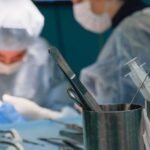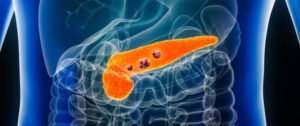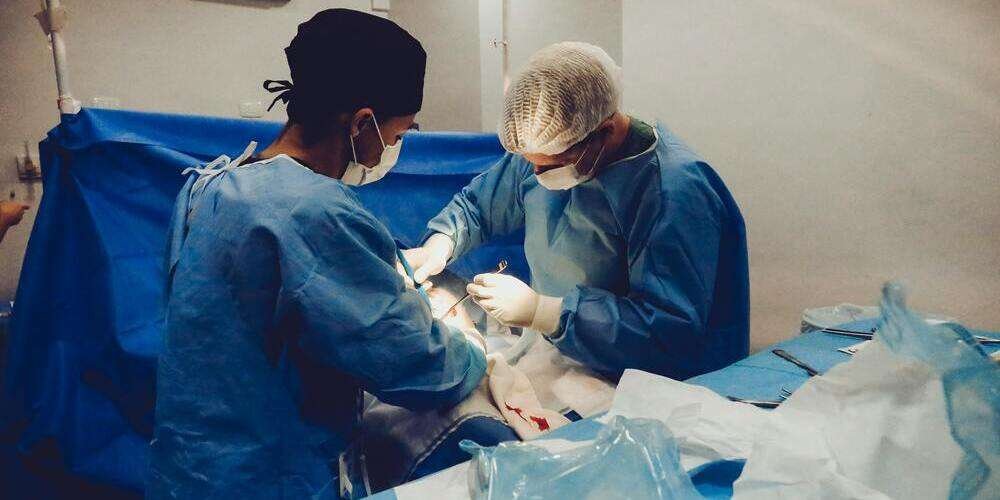
Gastrectomy Surgery to Treat Stomach Cancer: Postoperative Diet and Nutrition
Gastrectomy surgery is a common treatment method for gastric cancer. After a gastrectomy, all or part of the patient’s stomach will be removed, depending on the size of the cut. This will reduce the food capacity of the stomach, making the stomach feel full more quickly, and may cause gastrointestinal symptoms or nutrient deficiencies.
This is because the food can directly reach the digestive tract and no longer stay in the stomach. This condition is called gastric dumping syndrome. This article will break down the dietary and nutritional information after gastrectomy. Please don’t worry, not everyone has gastric cancer surgery. Patients will all suffer from gastric dumping syndrome, and even if they suffer from it, the symptoms will gradually subside over time through dietary adjustments.
What is gastrectomy surgery
As the name suggests, Gastrectomy is a stomach removal surgery. The patient is first given general anesthesia, then an incision is made in the abdomen, and the stomach is removed according to the purpose of the surgery. The good news is that some doctors perform laparoscopic surgery, which requires only a few small surgical incisions, allowing patients to feel less pain and recover faster.
The following are two types of gastrectomy surgeries, each with different procedures. Details are as follows.
- Partial gastrectomy:
Part of the stomach is removed, leaving the remaining stomach to continue digestive functions. - Total gastrectomy:
The entire stomach is removed and the small intestine is directly connected to the esophagus.
According to the University of California San Francisco School of Medicine, when severe gastric ulcers occur in the duodenum (the upper part of the small intestine), the pylorus may be removed along with part or all of the duodenum. This will cause food to reach the small intestine quickly without the steps of being digested and decomposed, causing gastric phagophagia syndrome.
Gastrectomy Surgery Purpose and Risks
In addition to stomach cancer, gastrectomy surgery can also be used to treat other stomach problems, including:
- Gastric ulcer bleeding and inflammation
- Perforation of stomach wall
- Gastric polyps
It cannot be ignored that gastrectomy surgery also has risks. The following should be noted:
- The connection between the stomach and intestines leaks, which can cause infection or abscess.
- The connection between the stomach and intestines narrows, causing obstruction.
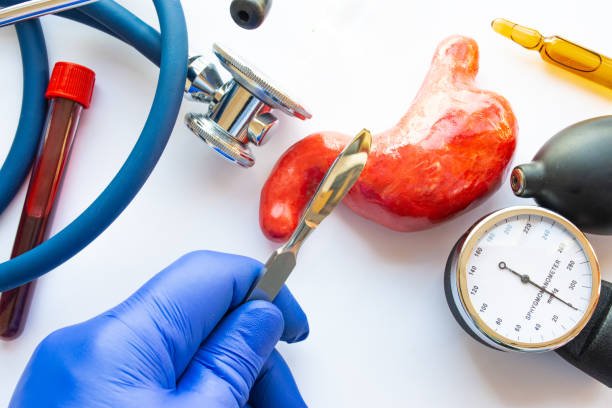
Possible effects after gastrectomy surgery
The physiological effects after gastrectomy surgery vary from person to person, but usually patients can still enjoy most meals. No Stomach For Cancer, a non-profit organization focusing on the prevention and treatment of gastric cancer in the United States, recommends that you record the food you eat and drink every day and the physical side effects it may cause in a note, and observe it for several weeks. This can also help customize your own menu.
The following are some dietary problems that may occur after gastrectomy surgery. I would like to remind you that if you do not have the symptoms mentioned above, you do not need to adjust this part of your diet. Patients can try new foods one by one to judge the body’s response to them. Tolerance and tolerance of the food.
- Nutrient deficiencies, specifically fiber, calcium, iron, and vitamin B12
- Lactose intolerance
- Gastric dumping syndrome
- Rapid weight loss (referring to weight loss exceeding 0.5~1kg within a week, which is dangerous for both normal weight and overweight people)
Dietary considerations after gastrectomy surgery
Mackay Memorial Hospital recommends that after gastrectomy, food enters the jejunum directly without being mixed and diluted in the stomach. Therefore, within half an hour after eating, it is easy to cause abdominal pain, palpitations, dizziness, fullness, diarrhea, nausea and vomiting, etc. Condition. Therefore, please pay attention to the following things when eating after surgery:
- Eat small meals more often
- Avoid refined sugars
- Avoid gas-producing foods
- Avoid irritating foods
- Eat protein in moderation
- Avoid drinking water or liquids within 1 to 2 hours after eating and eating
- Please chew thoroughly before swallowing
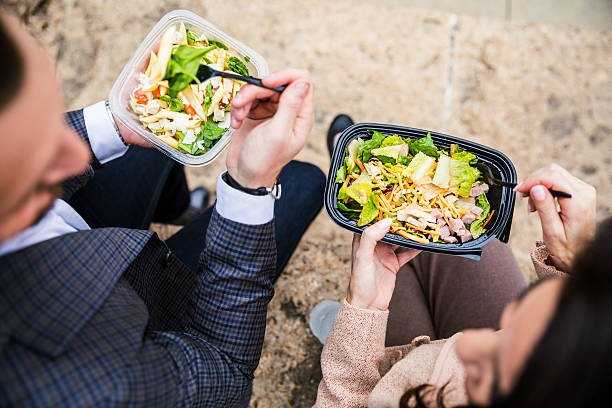
Four stages of diet after gastrectomy surgery
After gastrectomy surgery, patients may need to drink boiled water or clear liquids as directed by the doctor, and their diet will be adjusted over time until they can eat a normal diet. The four dietary stages are as follows.
- Clear liquid diet (1 to 3 days after surgery):
Clear liquid diet should be limited to only clear liquids. If the patient’s body can tolerate it, it will usually last for one to two days. For example: porridge water and couscous flour are made into milk, vegetable juice, milk, yogurt, and custard. - Full liquid diet (3 to 7 days after surgery):
If the patient does not experience pain or discomfort with clear fluids, the physician can adjust to a full liquid diet. Examples: Smooth oatmeal, porridge, vegetable puree (with milk, oil, cream or cheese), soft fruit puree, canned fruit puree, milk, plain yogurt (no added fruits or nuts), custard, meat or fish Or mashed beans with sauce, or pureed soft tofu. - Semi-liquid diet and soft diet (7 to 14 days after surgery):
If the patient’s body can tolerate full liquids, the doctor can directly include semi-liquid and soft diet. For example: porridge, oatmeal with milk, cooked rice or pasta, white toast spread, vegetable puree or soft boiled vegetables (with milk, oil, butter, or cheese), juice, canned fruit, soft fruit, Milk, fruit yogurt, custard, soft boiled meat or fish with sauce, boiled eggs, poached eggs, egg rolls, scrambled eggs, stewed beans. - Low-calorie balanced diet (one month after surgery):
After eating a semi-liquid and soft diet for a period of time, if the patient has become accustomed to it (about seven weeks later), he or she can slowly adjust to a low-calorie balanced diet. While reducing calories, adjust based on the principle of a balanced diet and start adding solid foods. It is recommended to start with protein foods, such as dairy products, beans, fish, eggs, meat, etc. However, irritating foods must still be avoided.
Preventing nutrient deficiencies after gastrectomy
Due to the small amount of food eaten after surgery, the nutrients taken in are not enough for the body. Therefore, it is necessary to strengthen the supplement of nutrients to avoid the occurrence of deficiencies. The following are common nutrient deficiencies after surgery:
- Insufficient protein intake:
Due to the significant reduction in gastric capacity after surgery, it is easy to cause insufficient protein intake, which affects postoperative tissue repair, causing hair loss, muscle loss, and a decrease in basal metabolic rate.
Foods rich in high-quality protein include soybeans and their products, fish or seafood, chicken, pork, beef, dairy products, eggs, etc. The recommended amount of protein after surgery is 60 to 80 grams per day, or 1.1 to 1.5 grams per kilogram of ideal body weight, which is equivalent to 6 to 8 servings of protein foods such as beans, fish, meat, and eggs per day. One serving of protein food is one or two Fish, one or two pieces of meat, one egg, 240 ml of low-fat fresh milk, 260 ml of soy milk or half a box of boxed tofu. If you are unable to consume enough protein from natural foods, you can follow the guidance of your doctor or nutritionist to supplement your protein intake with commercially available high-protein powder. - Insufficient water intake:
Water is the largest component of the human body, accounting for approximately 60% of body weight. Insufficient water intake may easily lead to dehydration, which may affect physiological functions and lead to constipation.
It is recommended to drink 1500~1900 ml per day in the first week after surgery, and then gradually increase the amount of water you drink until the urine turns light yellow depending on the tolerance of the stomach. It is recommended to choose boiled water and sugar-free liquids (such as soup, sugar-free soy milk, low-fat milk, etc.), avoid alcohol and sugary drinks, and carry a kettle and tea cup with you for easy sipping at any time. - Vitamin B12 and iron deficiency:
Due to insufficient vitamin B12 and iron intake and affected absorption after surgery, about 40% to 50% of people will develop anemia 1-2 years after surgery.
In addition to following the advice of your doctor or nutritionist to supplement commercially available multivitamins and vitamin B complex, you should consume more foods rich in vitamin B12, such as salmon, meat, oysters, herring, mackerel, milk and eggs, etc., as well as foods rich in iron. Quality foods, such as liver, oysters, meat (especially red meat), eggs, dark green vegetables (such as red amaranth, celery, spinach, etc.). - Calcium and vitamin D deficiency:
Insufficient intake of calcium and vitamin D can cause osteoporosis and osteomalacia. It is recommended to follow the advice of a doctor or nutritionist to supplement calcium tablets containing vitamin D, and to consume calcium-rich foods, such as milk and other products, dried small fish, seaweed, dried shrimps, dark green vegetables, black sesame seeds, etc., and foods rich in vitamin D, such as egg yolks, cheese, fish, and liver.


